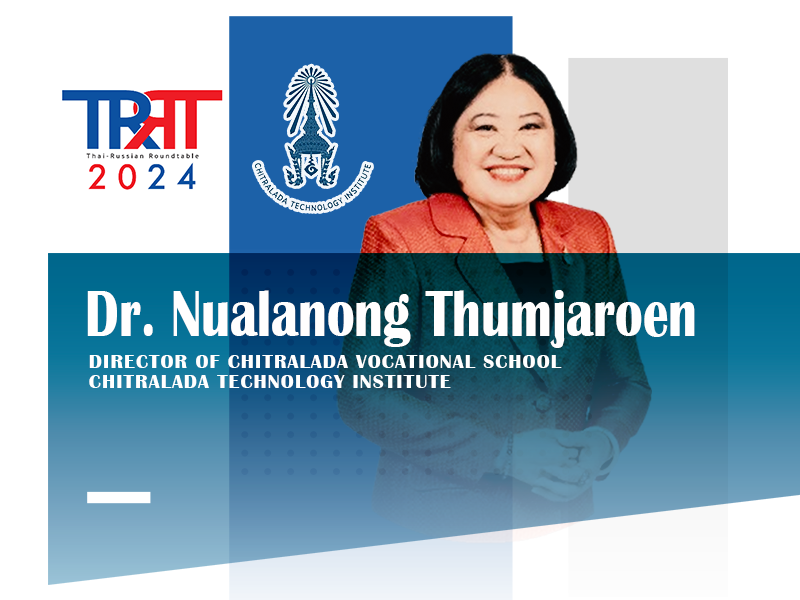Abstract TRRT 2024 Dr. Nualanong Thumjaroen
Gifted Vocational Education: A Case Study on Thai Musical Instrument Craftsmanship
Dr. Nualanong Thumjaroen
Director of Chitralada Vocational School
Chitralada Technology Institute, Bangkok 10300 Thailand
Abstract
The craftsmanship of Thai musical instruments, an intangible cultural heritage, reflects the unique identity and rich cultural traditions of Thailand, passed down and developed over generations. The creation and maintenance of Thai musical instruments is both an art and a science that requires the meticulousness and a high level of skill. However, the current shortage of skilled artisans and knowledge in the creation and repair of musical instruments has led to the gradual disappearance of this craft.
Her Royal Highness Princess Maha Chakri Sirindhorn initiated the preservation and revitalization of this craft by establishing a curriculum in Thai musical instrument craftsmanship. This curriculum is now part of both the vocational certificate and higher vocational certificate programs at Chitralada Vocational School, Chitralada Technology Institute. The program begins with basic training in less complex craftsmanship, such as leatherwork and the construction of bowed instruments. It then progresses to specialized skills, including auditory skills, tuning, and sound adjustment for wind and metal instruments. The curriculum culminates in advanced training for more complex tasks, particularly in the construction of plucked and percussion instruments.
At Chitralada Technology Institute, students are sent to study directly with master craftsmen who specialize in each type of musical instrument. This approach facilitates the direct transmission of skills and craftsmanship from the masters to students who are genuinely interested. This program represents a unique form of gifted education, where students have the ability to both construct musical instruments and perform music on them. In every step of the instrument-making process, students are required to apply fine arts skills in designing patterns on the instruments and to develop technologies for their construction and repair. This ensures that the teaching and learning process meets high standards and produces highly skilled craftsmen. The program utilizes Project-Based Learning (PBL) combined with a block course approach to guide the educational process. This method results in the production of various types of Thai musical instruments, including stringed, bowed, percussion, and wind instruments, as well as metal and leather instruments.
In the academic year 2023, the successful outcome included Thai musical instruments with Chitralada patterns, which were exhibited at the National Music Museum in Moscow, Russia. This achievement underscores the international recognition and success of this innovative educational program in preserving and advancing the art of Thai classical music instrument construction.




